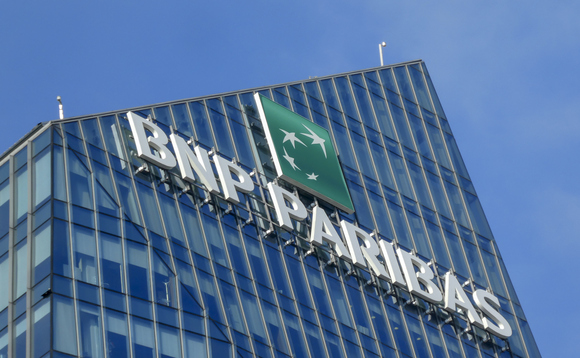BNP Paribas has become the latest firm to be taken to court over its climate credentials, with a raft of NGOs this morning announcing they are suing the French banking giant over its investments in fossil fuels and contribution to climate change.
The action, brought by Friends of the Earth France, Notre Affaire à Tous, and Oxfam France, is believed to be the world's first climate lawsuit against a commercial bank.
The campaigning organisations claim that BNP Paribas - Europe's biggest bank and a major global investor in fossil fuels - has failed to comply with France's duty of vigilance law, which demands large companies take appropriate measures to protect human rights and the environment across their value chains.
The case will argue that as Europe's number one investor in oil and gas expansion, BNP Paribas's financial strategy directly flouts warnings from the scientific community that new oil, gas and coal fields will push the 1.5C limit set out in the Paris Agreement out of reach.
Lorette Philippot, a campaigner at Friends of the Earth France, said the bank was "ignoring scientific truths".
"The urgent warning professed by the scientific community and the International Energy Agency has recently been reiterated through repeated statements from the United Nations: a bank cannot claim to be committed to net zero while supporting new oil and gas project," she added.
Last month, BNP Paribas announced it would reduce its financing of oil and gas assets by 80 per cent and 30 per cent, respectively, by 2030, arguing it was already in the midst of a "major pivot" away from fossil fuels and towards clean energy.
But campaigners warned the bank's commitments did not go far enough to bring its financing in line with climate goals, pointing out that the bank still did not require eight of its major oil and gas clients to immediately stop developing new oil and gas projects, in line with scientific advice.
Responding to the claim, BNP Paribas spokesperson said it was regrettable that the NGOs had "chosen to engage in litigation rather than dialogue".
"BNP Paribas, like other major international banks, is a long-standing financier of energy production, the spokeperson added. "Approximately 10 years ago, 95 per cent of our outstanding financing for energy production financed fossil energy projects. Today, already more than half of our financing for energy production is oriented towards low carbon energies. By 2030, BNP Paribas will have transitioned its financing activities to low carbon energy production by more than 80 per cent, well ahead of the transition of the rest of the economy."
As a member of the Net Zero Banking Alliance, BNP Paribas has committed itself to "funding a carbon-neutral world by 2050, which means that the temperature increase should not exceed 1.5C compared to the pre-industrial era".
The lawsuit, filed at the Paris Judicial Court, has been launched by the campaigners after the Bank failed to meet a string of demands they set out in a letter in October 2022.
It is part of a wave of climate litigation being brought against companies, governments, and regulators around the world. The suit against BNP Paribas comes just a week after Shell's directors were hit with a legal action over the company's climate strategy, and the UK financial regulator was targeted with a new legal challenge over its approval of an oil and gas company's prospectus - clearing it for a public listing - that claimants believe did not adequately incorporate climate risk disclosures.
Justine Ripoll, campaigner at Notre Affaire à Tous, said the action against a commercial bank would set a precedent that others could follow. "The financial sector has a huge responsibility in our collective ability to comply with the Paris Agreement," she said. "This first climate litigation against a commercial bank is undoubtedly the first of many around the world."
The case comes just a day after HSBC revealed it had added greenwashing to its risk register, with financial documents published this week describing it as "an important emerging risk that is likely to increase over time as we look to develop capabilities and products to achieve our net zero commitments".





